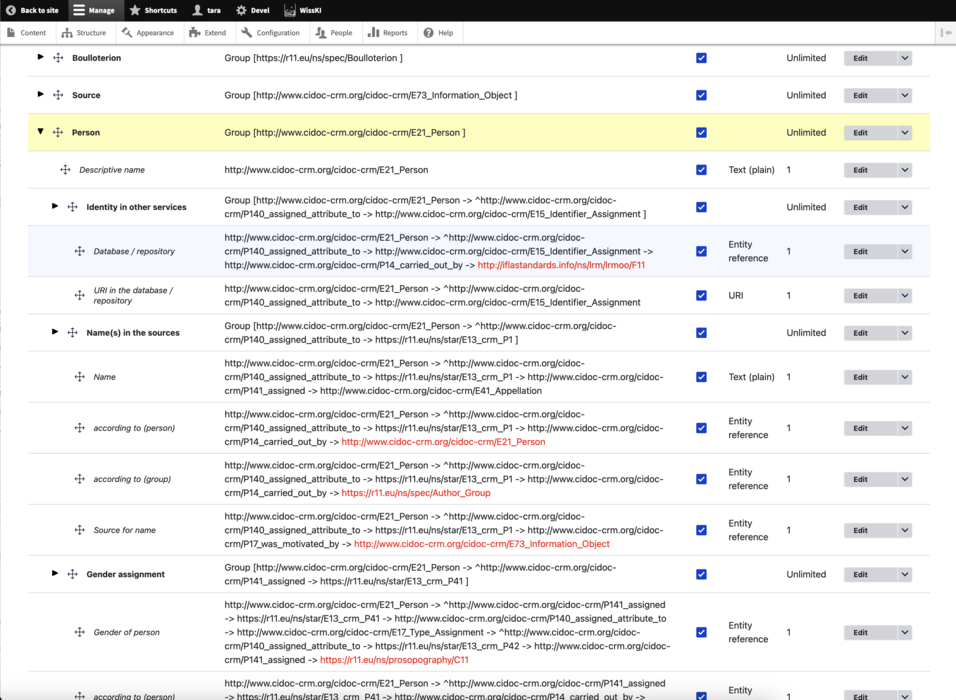Perhaps the most substantial challenge of coming up with a new data model for representing historical information is to provide a way for my team to actually use that data model. It's all well and good to have diagrams of our classes and relationships, ontology definitions, and even some scripts for conversion of existing data into our data model, but if we want to go beyond reusing what is already out there and gather some of our own data from the sources we find, then we need to have a way to collect and structure the information without everyone having to learn to write direct database queries.
The solution we are adopting is a piece of software called WissKI, which is actually a plugin for the web CMS (that is, "content management system") Drupal. This is quite a big learning curve for me, as I have never used Drupal and am unfamiliar with its terminology, and using WissKI also means stepping away from my favourite graph database in order to use a 'real' RDF triple store, at least long enough to gather the data.
The selling point of WissKI is that a user can define their own ontology (that is, classes of things and the relationships between them), and then use this ontology to set up web forms for data entry and display. Under the hood, WissKI will take what is entered into these web forms and put all the bits of information into the correct place in the data model, leaving as little room as possible for the person entering the data to break our model. Moreover, WissKI was developed mostly with CIDOC-CRM in mind, which is the core ontology that we are using to create our project model.
Still, there has been a lot to understand about how WissKI does things, beginning with the path hierarchy (that is, all those chains of things and the relationships between them that let us say things like 'person A says on the basis of inscription B that person C died in Nicaea in 1078' while still sticking to our data model) and going on to how the forms we get correspond to the paths we make, and then understanding on top of that how to display our data with informative titles and captions and so on. This hasn't been an easy process, by a long shot, but it would have been a lot harder without the kind and responsive community on the WissKI Mattermost server, who have patiently answered the barrage of questions I have been sending their way for the past month or two.
As of a week or two ago, everything seems basically to work! Now the real test comes: how will it hold up under the weight of all our data, and how well will my team get along with using it? The life of a project technical lead (and, for that matter, overall lead) never ceases to be exciting.

